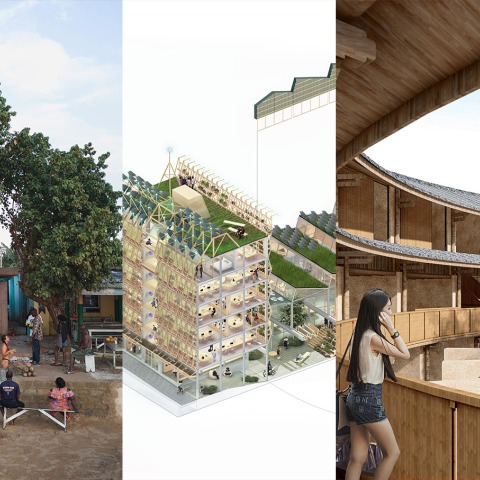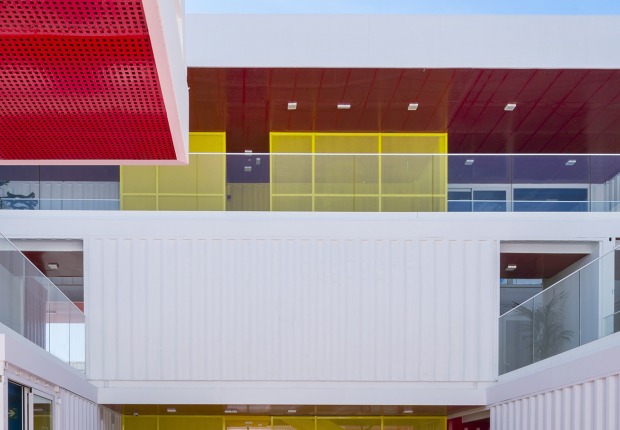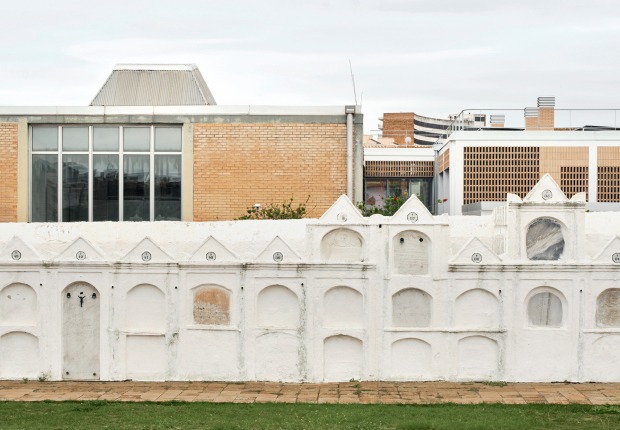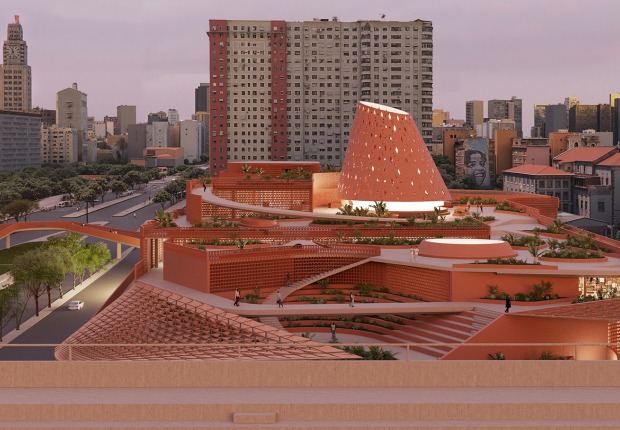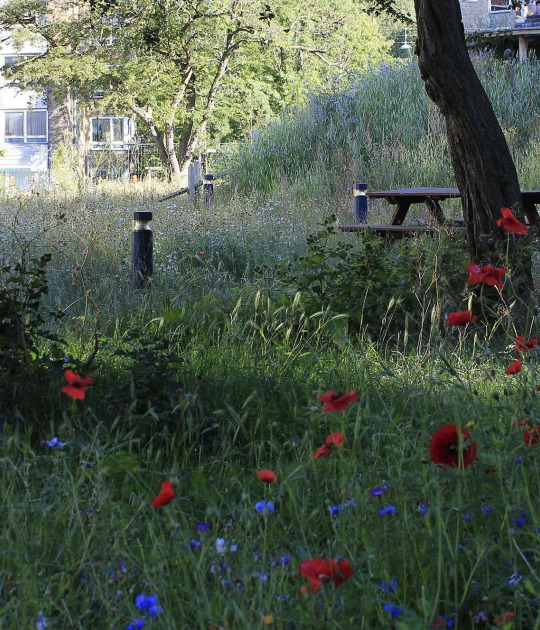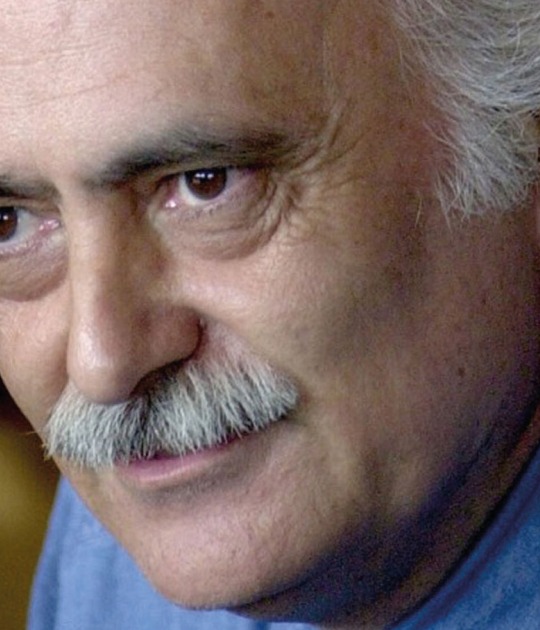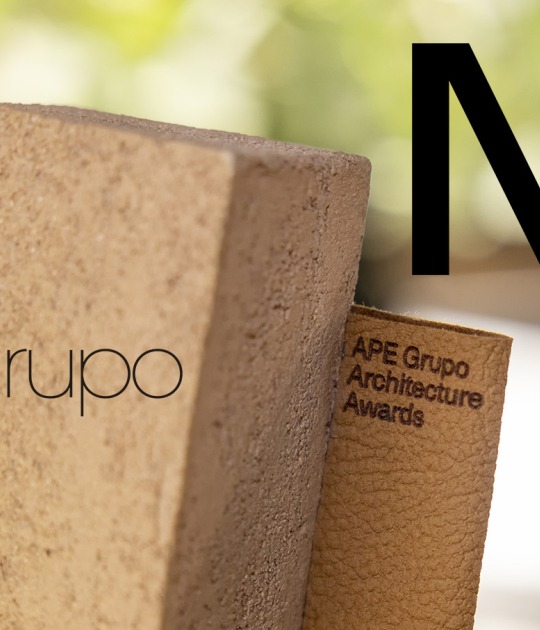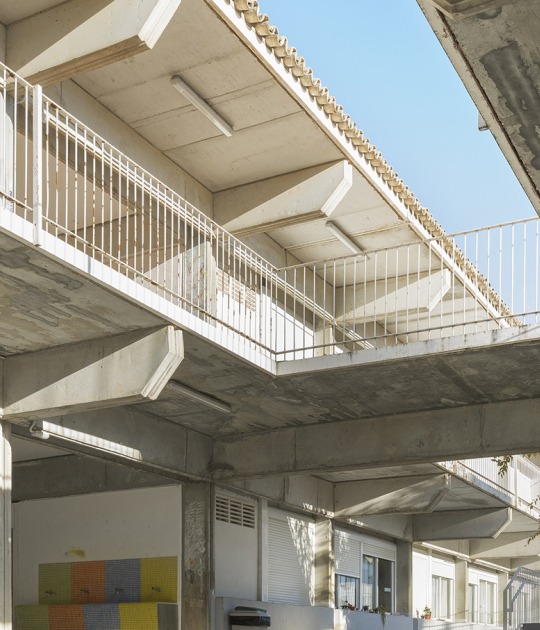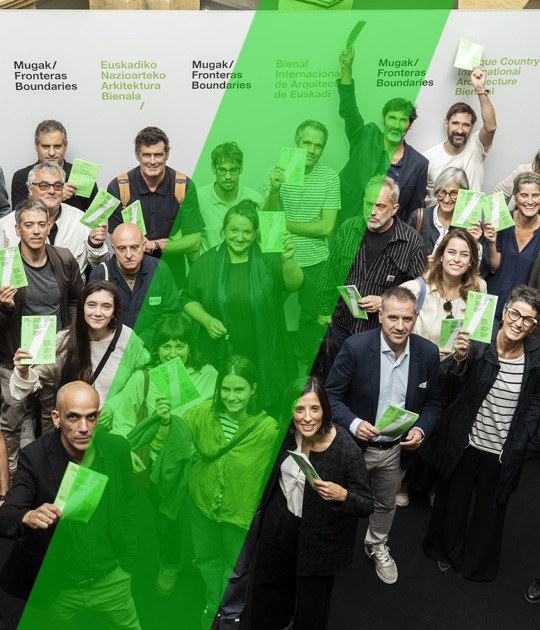The awards had 2,380 registrations of interest from 114 countries and 500 submissions that met the participation criteria. Of them, five projects received the gold award for their outstanding contribution to local sustainable development within their region, with a prize of one hundred thousand dollars each. Silver, bronze, and recognition awards have also been distributed in each of the regions, with a prize of sixty, 30, and 10 thousand dollars respectively to each of the winners.
«In a world where sustainability has multiple interpretations, the Holcim Foundation is proud to shine a light on projects that demonstrate best-in-class solutions for creating uplifting places. that meet human development objectives and at the same time restore and regenerate natural systems. “We encourage all of our Holcim award winners to use this global recognition as a platform to help accelerate the realization of sustainable construction in their regions.”
Laura Viscovich.
Awardees in the Asia Pacific region.
-Gold Award.- Fujian Tulou, Zhangzhou, Fujian, China for DnA_Design and Architecture. The gold-awarded project defines a conservation approach through adaptive reuse and proposes a prototypical framework to give new value to traditional tulou structures.
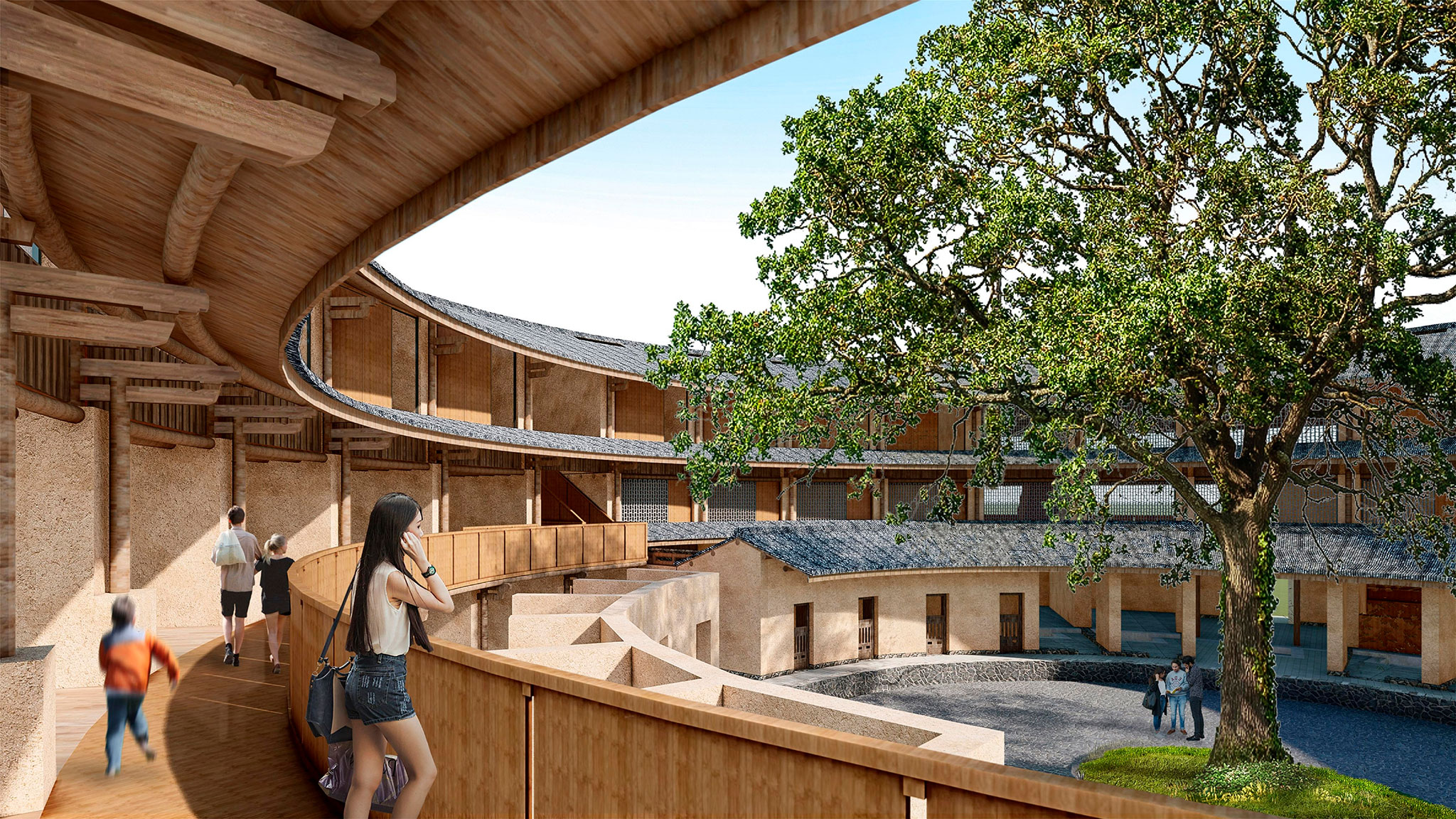
Fujian Tulou by DnA_Design and Architecture.
-Silver Award.- Ger Plug-In 3.0 Ulaanbaatar, Mongolia for the District Development Unit, Energy Efficient Design Construction, and Ger Hub. It has been recognized with the Silver Award as a housing prototype that improves Ger (traditional felt tents) housing to provide affordable, energy-efficient housing with integrated infrastructure that improves air quality, health, and well-being.
-Bronze Award.- NUS Yusof Ishak House, Singapore by the National University of Singapore (NUS). Adaptive reuse and modernization of a 1970s university administrative building that aims to be the first of its kind on campus to achieve the net zero energy goal in its operational phase.
-Recognition Award.- Post-Covid Factory, Đồng Nai, Vietnam, by Le Quang-Architect(s). An industrial remodeling project that offers a better indoor and outdoor work environment through a denser but permeable mass that features breathable surfaces, an integrated natural landscape, efficient energy use of equipment, and ventilation systems.
Awardees in the European region.
-Gold Award.- The 17th. Composition from Casa del Conocimiento, Madrid, Spain by Husos, Elii, and Ultrazul. Rehabilitation of an industrial building into a vibrant community center through a comprehensive 360° co-design process that emphasizes material circularity and increases urban biodiversity.
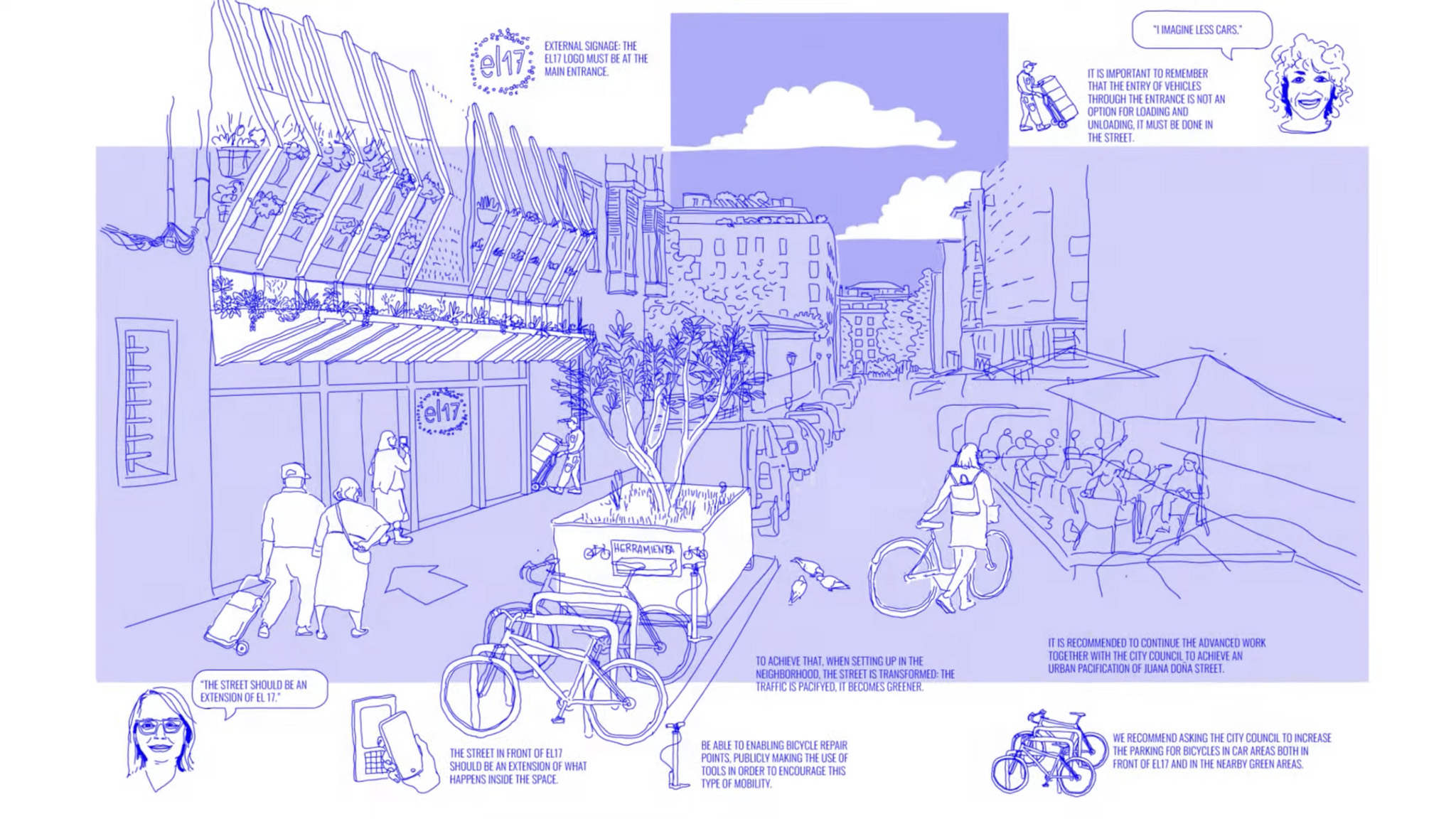
El 17 by Husos, Elii, and Ultrazul.
-Silver Award.- Urban Nature Project, Natural History Museum, London, United Kingdom by Feilden Fowles, J&L Gibbons, and the Natural History Museum. The landscape program transforms the two-hectare London Gardens to increase biodiversity, accessibility, scientific research, and best-practice outdoor nature learning while responding to the urgent need to re-engage people with the natural world and urban wildlife.
-Bronze Award.- Haus 2+, Berlin, Germany by Office ParkScheerbarth. A mixed-use building extension for a cooperatively organized cultural complex that expands the architectural language of prefabricated timber structures beyond their typical angularity while maximizing energy efficiency.
-Recognition Award.- High-rise site H1 Zwhatt, Regensdorf, Switzerland by Boltshauser Architekten. A flexible modular apartment tower for 2,000 residents that concentrates density to reserve land for well-structured outdoor spaces and generates around half of the electrical power needed for the apartments through integrated and rooftop photovoltaics.
Awarded in the Latin American region.
-Gold Award.- Utopia Estrella Iztapalapa, Mexico City, Mexico by CANO | VERA Architecture. An urban remediation project that aims to transform a site that includes a former landfill to create facilities for sport, culture, social engagement, and ecological education for the 230,000 inhabitants of
Iztapalapa.
Iztapalapa.
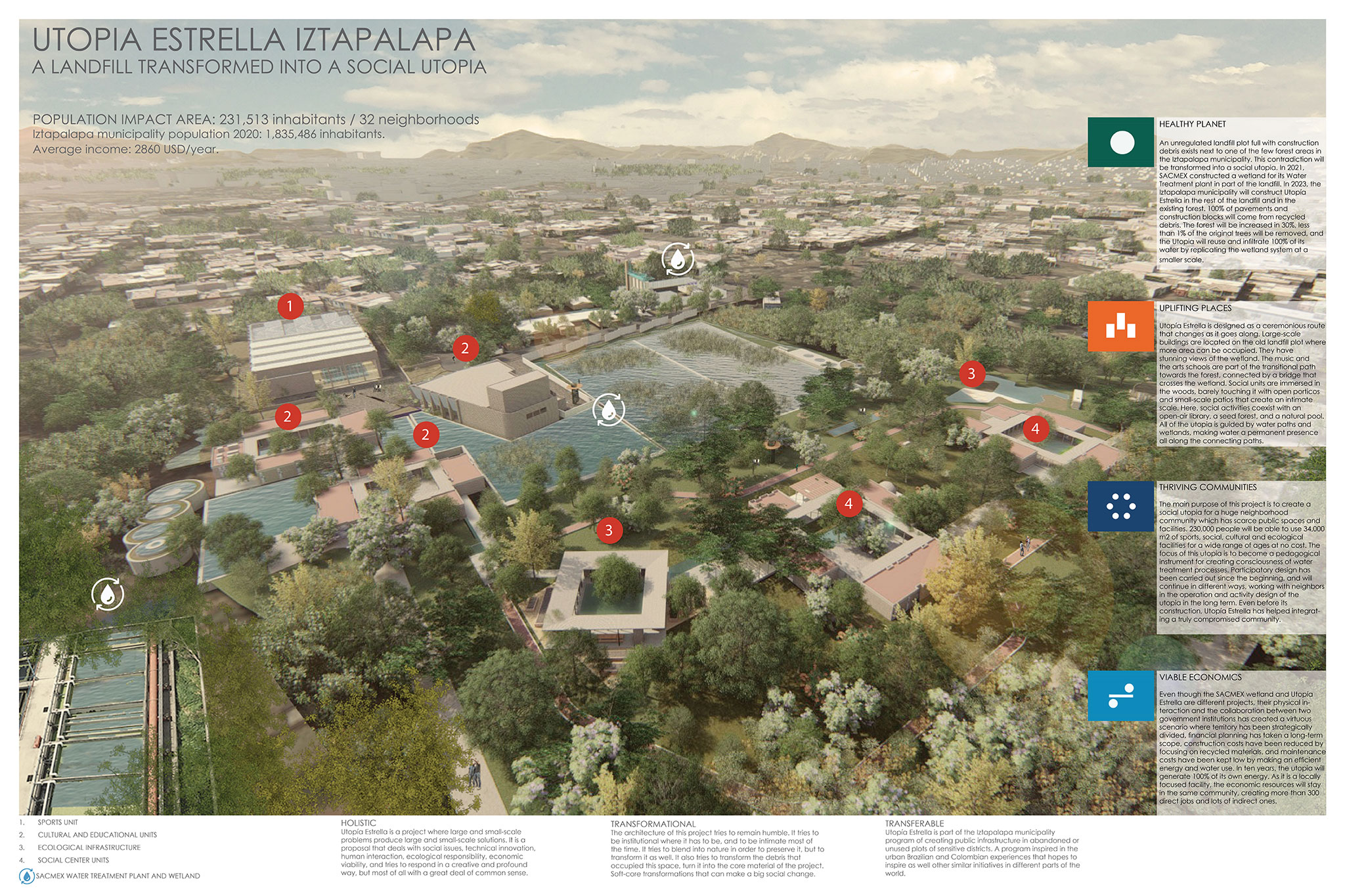
Utopía Estrella Iztapalapa by CANO | VERA Arquitectura.
-Silver Award.- Colegio San José De Nueva Venecia, Sitio Nuevo, Colombia by FP Arquitectura. A redevelopment project extending and renovating a village school for flexible community use and providing innovative biological wastewater treatment to improve ecosystem health.
-Bronze Award.- Salvando Portete – Isla Sostenible, Esmeraldas, Ecuador, by Rama Estudio. A resilience project for a coastal community following a 2016 earthquake that creates a sustainable island with affordable and decent housing and community infrastructure that responds to local needs.
-Recognition award.- Memorias del Agua, Río Negro, Colombia, by TAP Arquitectura, Rojas Arquitectos, Geografía Sur, Cosme Landscape Architecture and EMS Arquitectos. A system of amphibious parks located in an alluvial plain that seeks to revitalize its territory with habitat revitalization strategies that reconcile and strengthen the life dynamics of the natural and urban landscape.
Awarded in the Middle East and Africa region.
-Gold Award.- Surf Ghana Collective, Busua, Ghana by Juergen Strohmayer and Glenn DeRoché. A responsible tourism cooperative repurposing an existing building to create a dynamic community space that enhances economic opportunities and empowers the youth of Busua.
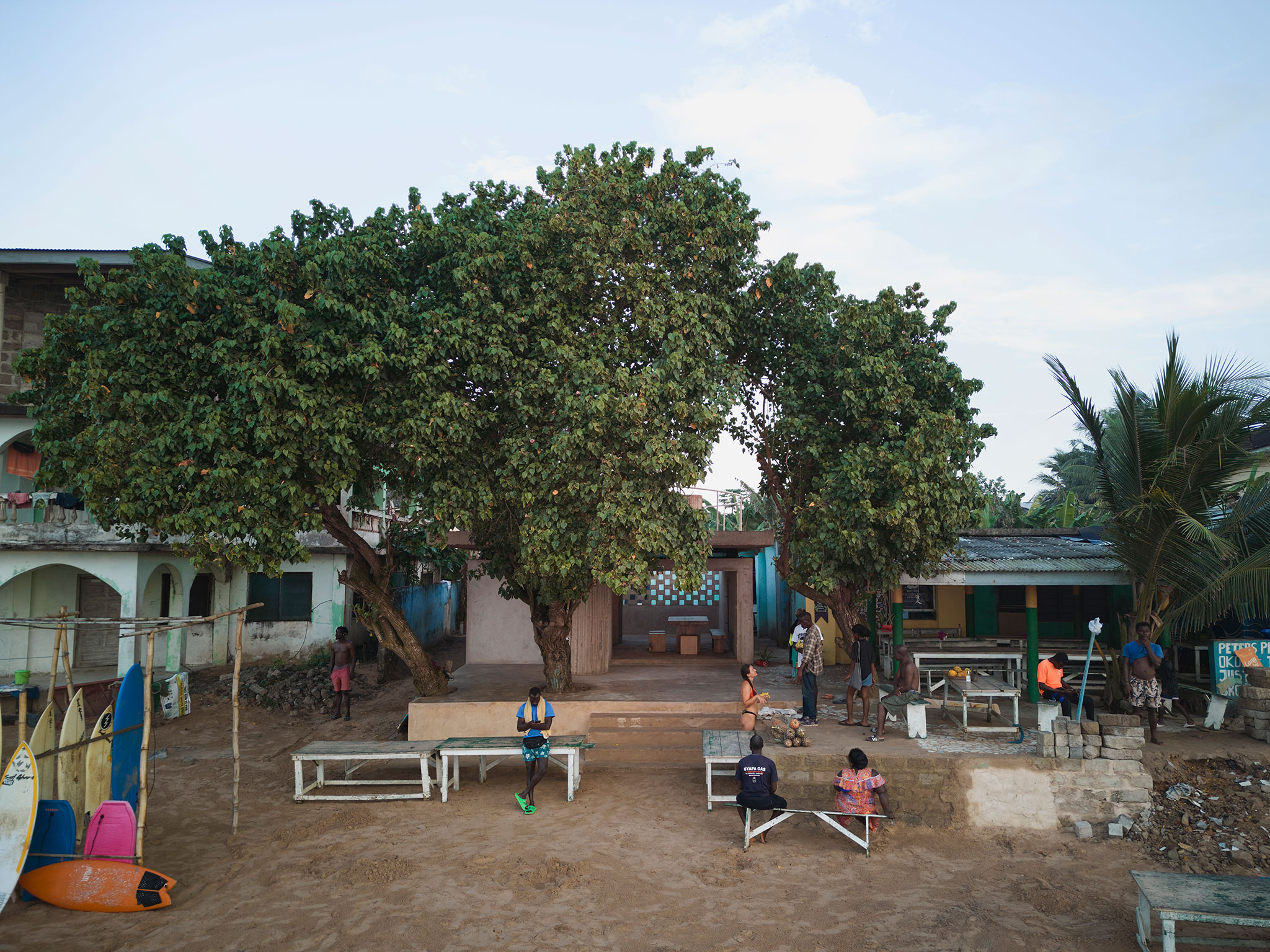
Surf Ghana Collective by Juergen Strohmayer and Glenn DeRoché.
-Silver Award.- Stream Co-Habitat, Tuzla, Türkiye, by Openact Architecture. An ecosystem regeneration and urban reintegration program that aims to develop a design scheme based on the water lines that shape the natural landscape and lifestyle of Tuzla while reconnecting it with its historical and cultural roots.
-Bronze Award.- Kfar Houneh Ecolodge, Kfar Houneh, Lebanon, by Akl Architects. An environmental remediation project located on the outskirts of the village of Kfar Houneh that promotes responsible tourism and historical preservation and incorporates an eco-lodge built with eco-friendly materials and techniques, using locally sourced natural materials.
-Recognition award.- Ezbet Eshaq Ecological Classroom, Ezbet Eshaq, Egypt, by the BENAA Foundation for Sustainable Development. A learning space built with the help of the local community in the agricultural village of Ezbet Eshaq using recycled materials, including 9,000 reused plastic bottles filled with sand, locally sourced compressed earth blocks, bamboo, and natural clay.
Awarded in the North American region.
-Gold Award.- 1925 Victoria Park Ave., Toronto, ON, Canada by Well Grounded Real Estate, Serotiny Group and CREE Buildings. A high-tech, low-cost modular housing solution that reimagines sustainable apartment living through the design of the first 12-story, near-zero, mixed-use rental development in Ontario.
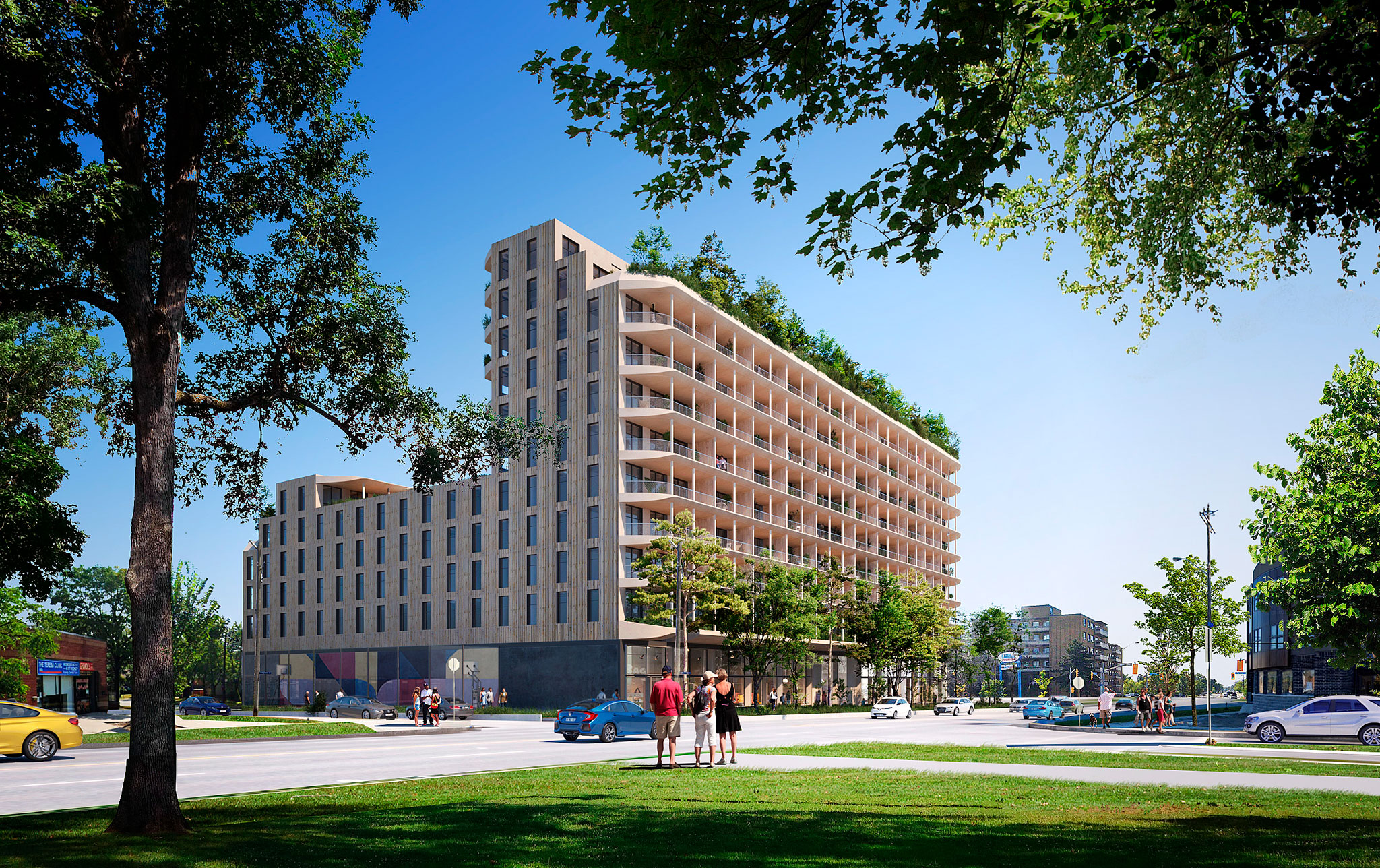
1925 Victoria Park Ave by Well Grounded Real Estate, Serotiny Group and CREE Buildings.
-Silver Award.- Maritime Innovation Center, Seattle, WA, USA, by The Miller Hull Partnership. A deep energy retrofit for a “blue tech” economic hub that reuses much of the heavy, century-old timber structure and provides 105% of the building's annual energy needs through heat exchange from the ground.
-Bronze Award.- Kaiser Borsari Hall, Bellingham, WA, USA, by Perkins and Will. A university building with on-site energy generation and storage achieving a 63% reduction in embodied carbon and a 100% reduction in operational carbon, designed according to the International Living Future Institute “smart building” standards.
-Recognition Award.- Muscowpetung Powwow Arbour, Muscowpetung Saulteaux Nation, SK, Canada, by Oxbow Architecture and Richard Kroeker. A traditionally built cultural space for an indigenous community that supports economic objectives by involving local sources of labor in the construction process using construction approaches that are strategically aligned with local resources and skills.
About the Holcim Awards Juries
The Holcim Awards juries were headed by:
• ASIA PACIFIC: Manit Rastogi, Founding Partner of Morphogenesis, New Delhi, India.
• EUROPE: Belinda Tato, Founder of Urban Ecosystem, Madrid, Spain, and Associate Professor in the Practice of Landscape Architecture at Harvard University Graduate School of Design, Cambridge, MA, USA.
• LATIN AMERICA: Tatiana Bilbao, Founder and Director of Tatiana Bilbao Estudio, Mexico City, Mexico.
• MIDDLE EAST AND AFRICA: Lesley Lokko OBE, founder and director of the African Futures Institute, Accra, Ghana; Curator of the 18th International Architecture Exhibition, La Biennale di Venezia.
• NORTH AMERICA: Craig Dykers, Founding Partner of Snøhetta, New York, USA.
• EUROPE: Belinda Tato, Founder of Urban Ecosystem, Madrid, Spain, and Associate Professor in the Practice of Landscape Architecture at Harvard University Graduate School of Design, Cambridge, MA, USA.
• LATIN AMERICA: Tatiana Bilbao, Founder and Director of Tatiana Bilbao Estudio, Mexico City, Mexico.
• MIDDLE EAST AND AFRICA: Lesley Lokko OBE, founder and director of the African Futures Institute, Accra, Ghana; Curator of the 18th International Architecture Exhibition, La Biennale di Venezia.
• NORTH AMERICA: Craig Dykers, Founding Partner of Snøhetta, New York, USA.
About the Holcim Sustainable Construction Awards
The Holcim Sustainable Construction Awards are the most important sustainable design competition in the world and showcase projects that contribute to the transformation of the construction sector. Established in 2004, the awards honor projects that combine sustainable design and construction with architectural excellence. With a global presence, the Holcim Awards have awarded more than 340 awards. For these innovators, the award is more than just recognition: it is a catalyst. From reinforcing project legitimacy to gaining recognition from international peers, the Holcim Awards play a key role in accelerating the best ideas and solutions for a more sustainable built environment.
About the Holcim Foundation for Sustainable Construction
Founded in 2003, the Holcim Foundation for Sustainable Construction supports accelerators of change in the built environment globally. Since its inception, the Foundation has researched and disseminated the different aspects of sustainable construction through a series of round tables and conferences with international experts. It has also recognized its excellent contributions in this field with the Holcim Awards, considered the most important sustainable design competition in the world.
